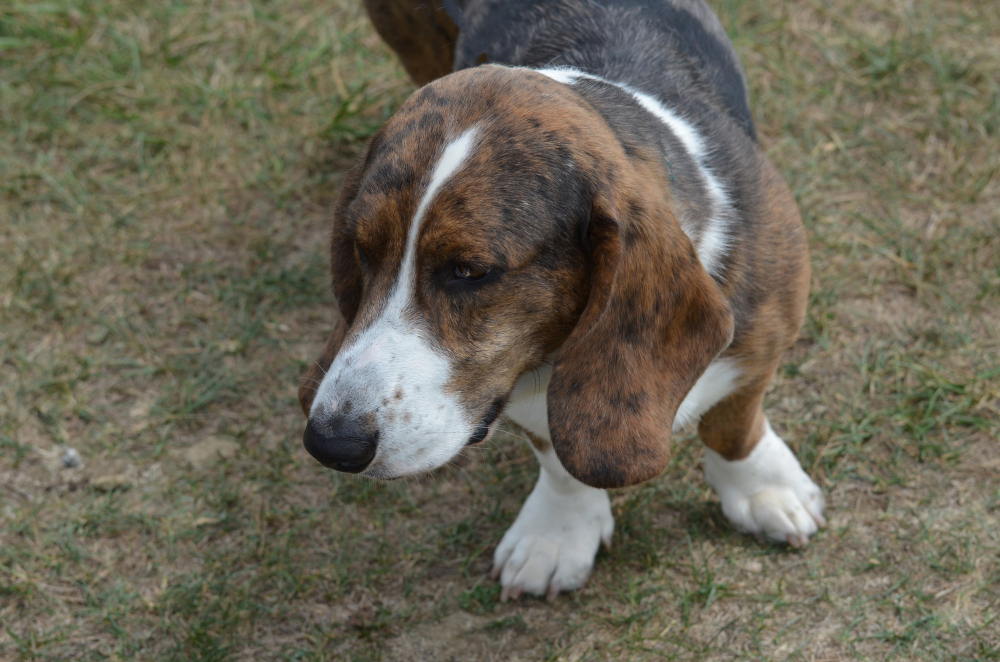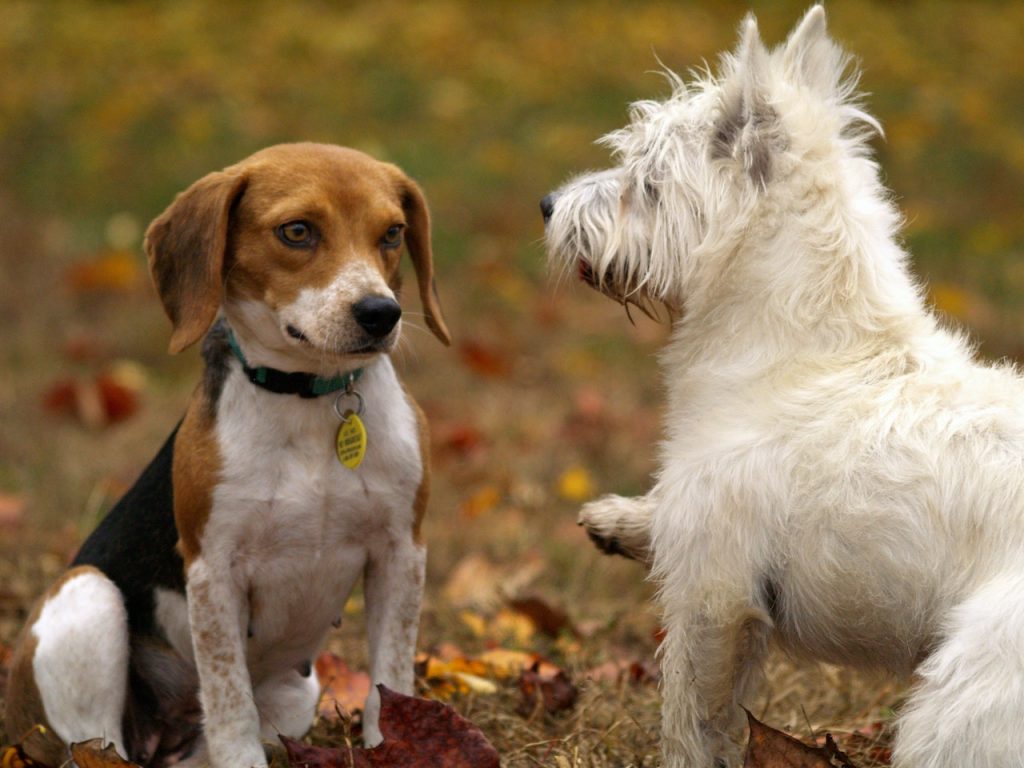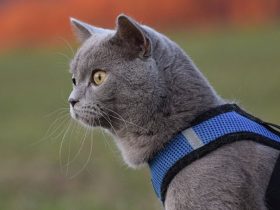BASSET HOUND PUPPIES AND DOGS
FAST FACTS
- Nickname: Basset
- Breed Group: Hound
- Height: 13-15 inches
- Weight: 40-60 lbs
- Life Span: 10-12 years
BASSET HOUND INFORMATION
BASSET HOUND BASICS
WHERE ARE BASSET HOUNDS FROM?
Basset-type dogs originated in 6th century France, but the term “basset” wasn’t seen until an illustration of hunting dogs in 1585. What we know of as the modern Basset Hound wasn’t developed until Great Britain in the late 19th century.
HOW MANY TYPES OF BASSET HOUNDS ARE THERE?
There are several types of scent hounds and various kinds of Basset dogs, but only one Basset Hound. Others Bassets recognized by the AKC include: Grand Basset Griffon Vendéen and Petit Basset Griffon Vendéen.
WHICH BREEDS MIX WITH BASSET HOUNDS?
- Bassador (Basset Hound + Labrador)
- Bassetoodle (Basset Hound + Poodle)
- Baskimo (Basset Hound + American Eskimo)
- Basschshund (Basset Hound + Dachshund)
BASSET HOUND LIFESPAN
Basset Hounds have a lifespan of around 10-12 years.
BASSET HOUND SIZE (HEIGHT & WEIGHT)
Basset Hounds are large dogs weighing 40-60 lbs and around 13-15 inches tall.

BASSET HOUND APPEARANCE
WHAT COLORS DO BASSET HOUNDS COME IN?
Basset Hounds are generally black, white, and tan or lemon and white, but plenty of variations exist.
HOW MUCH DO BASSET HOUNDS SHED?
Basset Hounds are moderate shedders — nothing that regular brushing can’t soothe!
DO YOU NEED TO GROOM A BASSET HOUND?
Basset Hounds don’t take much grooming: their short, smooth coat is easily kept clean, though you might find you need to pay more attention to cleaning their ears more often depending on how low to the ground they are.
BASSET HOUND TEMPERAMENT, PERSONALITY & TRAINING
HOW MUCH DO BASSET HOUNDS BARK?
Basset Hounds have a howl or a “bay” more than a bark. It’s comical-sounding and is mainly used when they feel lonely. As with any dog, they can be discouraged from frequently barking with proper training and exercise.
ARE BASSET HOUNDS GOOD WITH KIDS?
Basset Hounds are docile, easygoing, and comical dogs that are notoriously gentle with children.
As with any breed, it is recommended that your child is always supervised when interacting with your Basset Hound to keep both the child and dog safe.
ARE BASSET HOUNDS GOOD FAMILY DOGS?
Basset Hounds make fantastic family companions. They’re low-key, don’t demand much grooming or exercise (though they must be walked regularly to keep the weight off their low frames), and are known to master the cuddly couch potato look.
ARE BASSET HOUNDS GOOD WITH CATS?
Basset Hounds were bred to hunt in packs, which means they are usually reasonably easygoing around other animals. Of course, each dog (and cat) has his preferences and temperament, but you can feel pretty confident your Basset Hound if adequately socialized to your cat or introduced at a young age, should get along swell.
ARE BASSET HOUNDS EASY TO TRAIN?
Though Basset Hounds are very intelligent, they are also comically stubborn and sensitive, which might make it challenging to train. However, a patient trainer and many treats will help you prepare this long-eared hound.

BASSET HOUND HEALTH
DO BASSET HOUNDS HAVE A LOT OF HEALTH PROBLEMS?
Basset Hounds are a mainly healthy, sturdy breed.
WHAT DISEASES ARE BASSET HOUNDS PRONE TO?
- Gastric Dilatation-Volvulus (GDV): Bloat is a common but deadly condition that most commonly affects deep-chested dogs. Bloat is a sudden and life-threatening swelling of the abdomen. The swelling is caused by gas or air building up in the stomach and then twisting (torsion).
- Von Willebrand’s Disease: Von Willebrand’s disease (vWD) is dogs’ most common inherited bleeding disorder. It happens when a dog does not produce enough of a specific protein that helps the blood cells used in clotting stick together. This results in dogs being unable to clot properly and could cause haemorrhages or other bleeding issues. The deficient protein is called von Willebrand factor (vWF).
- Thrombopathia: This is another bleeding disorder that affects Basset Hounds. It involves a dog’s ability to clot properly.
- Hip or Elbow Dysplasia: Hip and elbow dysplasia are two of dogs’ most common skeletal diseases. They are similar diseases in which either the hip or elbow joint has grown abnormally or is misshapen. The abnormal shape prevents the joints and sockets from properly meeting one another, resulting in rubbing and grinding instead of sliding smoothly. Unlike hip dysplasia, where the main problem is joint instability, the abnormalities seen in elbow dysplasia often result in pieces of bone or cartilage breaking loose and irritating the joint tissues. Over time, the rubbing from dysplasia can cause various issues such as pain, lameness and secondary osteoarthritis. Surgery can be done to fix the joint if diagnosed before the onset of arthritis. If you are rescuing a Basset Hound, have him checked out by a vet to see if he has or is prone to getting dysplasia, so you know what he will be able to handle in terms of activities and exercise.
- Intervertebral Disc Disease: Intervertebral disc disease causes a bulge or rupture in the discs between the vertebrae. It can cause pain, nerve damage, and paralysis when happens.
- Eye Issues: The droopy eyelids of the Basset Hound make them susceptible to many eye issues, including; ectropion, the rolling outward of the eyelid; entropion, a genetic defect where one or both eyelids are inverted or roll inward and rub on the surface of the eye; a condition causing excessive pressure on the eye and making fluid drainage difficult; glaucoma, a condition causing undue stress on the eye and making fluid drainage difficult; and cataracts, a common eye condition that causes cloudiness in the eye and obstructs vision
- Others: Basset Hounds are prone to ear infections and mites because their long, pendulous ears (called “leathers”) do not allow air circulation. These delightful ears will need plenty of attention from their owners. They are also prone to obesity for their lazy attitude away from the hunt (i.e. at home). Patellar luxation (knee caps becoming dislodged), allergies, and self-limiting lameness or temporary limp (known as panosteitis) are also concerns. A veterinarian may recommend joint and eye tests for the dog to identify some of these issues.
PURCHASING VS ADOPTING A BASSET HOUND
HOW MUCH DOES A BASSET HOUND COST?
You can adopt a Basset Hound at a much lower cost than buying one from a breeder. Adopting a Basset Hound costs around $300 to cover the expenses of caring for the dog before adoption. In contrast, buying Basset Hounds from breeders can be prohibitively expensive. Depending on their breeding, they usually cost anywhere from $500-$1,800.
WHERE CAN I ADOPT A BASSET HOUND
The easiest way to adopt a Basset Hound would be through a rescue that specializes in Basset Hounds.
BASSET HOUND SHELTERS AND RESCUES
Animal shelters and rescues focus specifically on finding great homes for Basset Hound puppies.
WHERE CAN I FIND A BASSET HOUND BREEDER?
Before purchasing a Cockapoo puppy from a breeder, we advise you to rescue a dog of any breed. There are millions of homeless dogs around the country, many of which are purebred and who need homes. Adopting a Cockapoo may be life-changing – not only for the dog but for the person.
If you’re not convinced and intend to buy a Cockapoo from a breeder, it is safest to purchase a puppy from a reputable breeder. When working with a breeder, please verify that the breeder you’re buying from does genetic testing of their animals and be sure to verify the puppy’s health information. Also, ensure the breeder will return any animals they sell if they cannot keep them in their home for any reason, and confirm that they are dedicated to finding those animals’ new homes if necessary.







